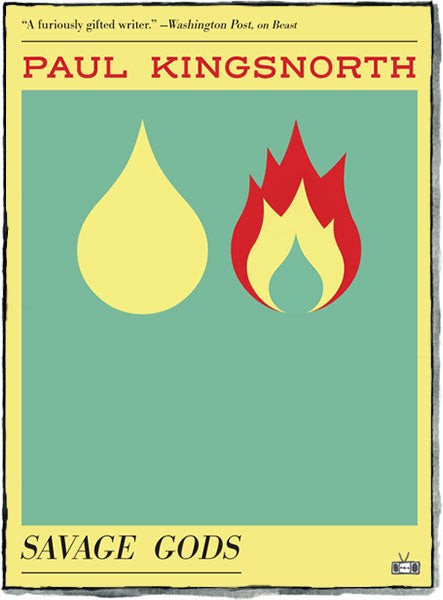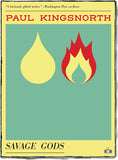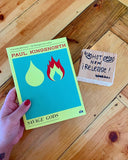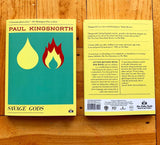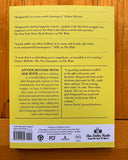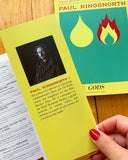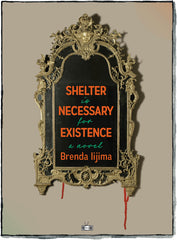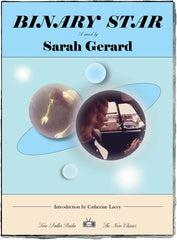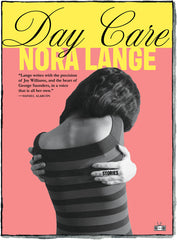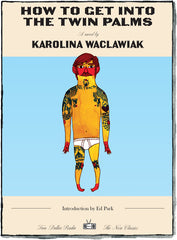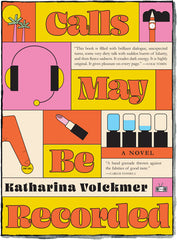Savage Gods
a book by
Paul Kingsnorth
ABOUT

* Chicago Tribune "Fall literary preview: books you need to read now"
* Vulture "The Best and Biggest Books to Read This Fall"
* The Guardian "A best book of 2019"
"A furiously gifted writer." —Benedict Cosgrove, The Washington Post, on Beast
"What ultimately makes Savage Gods a success is Kingsnorth’s passion. His honest probing of himself is the real strength of this book. He is a man bearing everything. And for all the confessional memoirs so popular at the moment, this is the real deal."
—Scott Beauchamp, The American Conservative
Synopsis
After moving with his wife and two children to a smallholding in Ireland, Paul Kingsnorth expects to find contentment. It is the goal he has sought — to nest, to find home — after years of rootlessness as an environmental activist and author. Instead he finds that his tools as a writer are failing him, calling into question his foundational beliefs about language and setting him at odds with culture itself.
Informed by his experiences with indigenous peoples, the writings of D.H. Lawrence and Annie Dillard, and the day-to-day travails of farming his own land, Savage Gods asks: what does it mean to belong? What sacrifices must be made in order to truly inhabit a life? And can words ever paint the truth of the world — or are they part of the great lie which is killing it?
Reviews
Scroll to bottom for Goodreads reviews.
"Savage Gods is a beautiful, intelligent, extremely poetic book about a writer dissecting his thoughts and feelings on the page without the protective layer of fiction."
—Gabino Iglesias, NPR
(Read the full review of Savage Gods)
"Like all the best books, [Savage Gods is] a wail sent up from the heart of one of the intractable problems of the human condition: real change comes only from crisis, and crisis always involves loss... There are few writers as raw or brave on the page. Savage Gods is an important book."
—Ellie Robins, Los Angeles Review of Books
(Read the full review of Savage Gods)
INTERVIEW: A conversation between Paul Kingsnorth and Charles Foster, to mark the publication of Savage Gods — "In June 2019 we invited Paul Kingsnorth to discuss his latest book, Savage Gods, with Charles Foster, in front of a live audience at Denman+Gould in Somerset. The resulting conversation takes in being an outcast, pain, leaving and contentment, the recording of stories and our relationship to the land."
—The Clearing Podcast (August 19, 2019)
"Paul Kingsnorth’s vision is both so compelling and so completely one-of-a-kind... Savage Gods [is] something of a throwback to the romantic cultures of a pre-modern world, and a lesson in what happens when those old gods are exhumed in an age when Nature becomes slave to Man, when customs give way to chaos, and the words we use to make sense of it all have lost their meanings."
—Josh Allan, Full Stop
"The most incredible book I read this year was Paul Kingsnorth’s Savage Gods, a dramatic self-accounting that explodes 'nature writing' to strain at the limits of language itself. Kingsnorth charts the breakdown of his faith in words, in nature as an uncomplicated restorative, in the idea of 'progress', while fearlessly tracking his conclusions to their very ends. This is a writer—and a writer that burns—attempting to cure himself of writing, on the page, and it leads to some profound, and just as often jaw-dropping, insights."
—David Keenan, The Guardian
"The best books of 2019"
"This profound meditation on words—and worlds—isn’t just for writers.... Kingsnorth delivers a refreshing reminder about how little we know about what we think we know."
—Jack McCarthy, Washington Independent Review of Books
(Read the full review of Savage Gods)
"Paul Kingsnorth’s Savage Gods sings with introspective urgency, transcending plot and narrative to get at the heart of the questions he considers truly important: what’s the usefulness of writing and language? Why exist, communicate, connect? And how can we ground ourselves in a shifting, uncertain world?"
—Victoria Hudson, Arkansas International
"When Paul Kingsnorth writes a book, we at BP pay attention. Novelist, essayist, ecologist and philosopher, and part of the group that started the Dark Mountain project exploring our collective grief at the collapse of nature, he’s quite possibly the premiere independent writer out there... [Savage Gods is] a rumination on restlessness, on isolation, on the increasingly solitary nature of the human condition, which the writer is uniquely able to understand."
—Broken Pencil
(Read the full review of Savage Gods)
"My nonfiction book of the year is Paul Kingsnorth’s Savage Gods, a meditative memoir on writing’s inability to ever capture life and the enduring struggle of displacement."
—Nora, Three Lives and Company Booksellers
"How often do we get an environmental activist and poet—who once worked undercover in West Papua New Guinea, who has been cited by figures as diverse as David Cameron and Mark Rylance, and who believes '[s]ocial media is like a giant communal toilet'—confronting the failure of language and civilization in 142 pages?"
—Molly Young, Vulture
"The Best and Biggest Books to Read This Fall"
"What can nature teach us about ourselves? For English writer Paul Kingsnorth, moving his family to a small farm in Ireland illuminated a sense of disconnection. He wrestles with language, land and rootlessness in Savage Gods.”
—Laura Pearson, Chicago Tribune
"Fall literary preview: 28 books you need to read now"
"Kingsnorth's is a voice worth listening to."
—Kirkus Reviews
(Read the full review of Savage Gods)
"In [Paul Kingsnorth’s book Savage Gods], he contrasts being around the campfire with being on the mountain to explore the tension of simultaneously longing for and rejecting rootedness to people, place, and tradition. "
—Jerry Kenney, The Daily Yonder
"Commentary: Around the Rural Campfire and High Up in the Mountains"
"Kingsnorth wrote his brilliant first novel, The Wake, in a language he created. This book provides a startling and instructive account of an uncommonly creative consciousness in a state of profound doubt."
—John G. Matthews, Library Journal
(Read the full review of Savage Gods)
"What ultimately makes Savage Gods a success is Kingsnorth’s passion. His honest probing of himself is the real strength of this book. He is a man bearing everything. And for all the confessional memoirs so popular at the moment, this is the real deal."
—Scott Beauchamp, The American Conservative
(Read the full review of Savage Gods)
"Savage Gods is a compromise of a book, too, veering between inner and outer worlds, shape-shifting from narrative to aphorism to vision. But tidiness is indisposed to containing multitudes, and there’s a price to pay in retaining them. Kingsnorth’s troublesome words do an unexpectedly moving job of capturing the problem of being, and of writing about it."
—Nina Lyon, The Spectator
"What is a home? And what happens when old patterns of life break down? In his new book... Kingsnorth wrestles with these questions. Contemporary threats to nature, he argues, are indicative of a deeper problem: the crisis of culture and language in the West."
—The Commonweal Podcast, Ep. 22: in conversation with Anthony Domestico.
"Kingsnorth grapples with his inabilities as a writer and the impossibility of ever truly feeling at home. Unlike anything I have read. Raw, and true, and perceptive."
—Nora, Three Lives and Company Booksellers, newsletter (New York, NY)
"Paul Kingsnorth is an acclaimed writer... His books bristle with an awareness of place and history, and so it’s not hugely surprising that his latest book, Savage Gods, is about his own embrace of a more rural existence.... Kingsnorth’s isolation prompts a crisis of confidence in his own abilities as a writer."
—Tobias Carroll, InsideHook
"What Happens When Living in Isolation Goes Wrong?"
"Savage Gods is the story of what happens when a writer’s tools finally fail him, even betray him."
—Josh Allan, Atticus Review
"Savage Gods is, in some ways, an earnest attempt to tell the truth about why we write. But it is much more than that … [it is] a meditation on the peculiar homelessness of our age, adrift as we are from any real connection to nature and landscape. In this way, Savage Gods is a deeply personal memoir of the ecology of home and an unusual and frank account of a writer’s experience."
—Melanie Challenger, author of On Extinction
"Horrible and brilliant and terribly important. This book is what I’ve been looking for for years, and what I’d hoped never to see."
—Charles Foster, author of Being A Beast
"A poignant, honest portrait of a crisis of faith, not in God or Self but a far rarer thing, a crisis of belief in words themselves, the very materials of the writer’s mind."
—Jay Griffiths, author of Wild
“Paul Kingsnorth’s books have such a profound affect on me that I always feel I must make them into a play or a film or something after reading them. In a world of such confusing news and opinion, I always find a story in Paul’s writing that leads me to an authentic place in the world.”
—Mark Rylance
"Kingsnorth is becoming an existential David Mitchell."
—Boris Kachka, Vulture
"Paul Kingsnorth has always held my attention, and at times completely astounded me with his varied and vital writing talent. This spectacular little volume is a book all about that writing talent, but discussions of process and craft are secondary to a more ontological exploration of what writing really is... and what it very much isn’t. We see the art form through Kingsnorth’s personal prism, and he slowly invites us in to ponder both the freedom and stricture that come with the endeavor to turn human language into the written word."
—Mark Schultz, Carmichael's Bookstore (Louisville, Kentucky)
"A sprawling meditation stuffed to the gills with poetry and literature. Kingsnorth looks at the decisions that made his life, roads taken and not. 'If not writing, then what?' he asks. Then what, indeed. All I can say is that I'm glad Kingsnorth has answered with this lovely book, full of wisdom."
—Spencer Ruchti, Harvard Bookstore (Cambridge, Massachusetts)
"An enigma of a book, Savage Gods takes a long hard look at the creative process of writing as well as deep, philosophical questions of purpose, place, and belonging. Kingsnorth wrestles with his prose and the whole idea of attaching words to lived experiences; questioning his choices and impulses at every turn. Purposefully meandering, deeply personal, and playfully existential, Savage Gods asks page after page, “What the hell is the point of all of this?” Kingsnorth doesn’t provide easy answers, but he has written an essential companion to anyone who creates or takes pen to paper. A unique, bleak and yet uplifting work; honest in a way few books ever are."
—Caleb Masters, Bookmarks (Winston-Salem, North Carolina)
"Paul Kingsnorth is one of my favorite writers and thinkers out there today. In Savage Gods, his deeply personal musings on writing and its value (or even relevance) in the face of global and environmental crises are heartfelt and thought-provoking. He puts on the page concerns I have found myself facing regularly with my own work—why even bother? The manner in which he delivers these thoughts in the book, very straightforward, and clearly present and not over-written, are honest and heartfelt. I read the electronic ARC of this one, and can't wait to get my hands on a finished, physical copy to keep close for future returns-to. Maybe what we do as writers is just tossing deck chairs off the Titanic, as the saying goes, but I hope Kingsnorth doesn't stop."
—Chris La Tray, Fact & Fiction Bookstore (Missoula, Montana)
"...the color story and simplicity are giving me real Wes Anderson vibes..."
—Emily Temple, Lit Hub
"The 11 Best Book Covers of September"
"A memoir-esque exploration of the relationship between writing, language, and place."
—Janice Pariat, The Hindu Business Line
Author

Paul Kingsnorth is the author of Confessions of a Recovering Environmentalist, Beast and The Wake, which was longlisted for the Man Booker Prize. He is co-founder of the Dark Mountain Project, a global network of writers, artists, and thinkers in search of new stories for a world on the brink.
Visit the Paul Kingsnorth author page for more.
Sneak Peek
info
CREDITS:
Cover design: Eric Obenauf
Author photo: Clare McNamee
PUBLICATION INFO:
FORMAT: Paperback (currently available)
LIST PRICE: $15.95
PAGES: 142
PRINT ISBN: 9781937512859
SIZE: 5.125" x 7.5"
Printed in USA
FORMAT: Paperback (First printing only: Gatefold)
LIST PRICE: $14.99
PAGES: 142
PRINT ISBN: 9781937512859
DIGITAL ISBN: 978-1-937512-86-6
PUB DATE: 9/17/2019
SIZE: 5.5" x 7.5"
Printed in Canada
Guide
Click here to view and/or download as PDF.
Book Club and Reader Guide: Questions and Topics for Discussion
1. Consider the epigraph, a quote from the poet Rainer Maria Rilke which encourages to “always trust in the difficult.” Do you think this tone complements Savage Gods?
2. Kingsnorth says that he has always run from comfort, believing that his writing would suffer if he allowed himself to be happy or comfortable. Do you believe that all great art must come from suffering?
3. Kingsnorth draws heavily on the image of the Machine world. What is it? What role does it play in the events of his memoir?
4. The narrator notes how “a plan can become, in an eye-blink, a cage,” believing to have inherited his tendency to plan from his father. How is his father’s desire for control mirrored in the narrator’s aims and ambitions in writing? Are the human desires to belong, know, and control perpetually out of our reach?
5. Displaying the uncertainty and turmoil that he is struggling to overcome, the author frequently writes in questions throughout the book. Was this an effective literary technique? Do you think it conveyed the friction between himself and the world around him?
6. Kingsnorth discusses a concept that our lives are divided into halves, the first half one of fire (agitation, movement) and the second half of water (cooling down). What do you think of this notion? Have you experienced this in your own life, or noticed it in someone close to you?
7. Who are the “savage gods” that Kingsnorth alludes to with the title of the book?
8. The author’s juxtaposition of his writer’s block and his yearning for silence are central to the story. After self-reflection, he thinks that he needs to distance himself from writing for some time in order to preserve his sanity and arguably his ability to continue to be a writer. Do you think he overcame this hurdle through writing itself? How did his own expectations hinder him?
We are grateful to the following early readers for their assistance with this Reader Guide: Alexander Pickering, Ava Gripp, Brianne Tufts, Conrad Schreiner, McKenna Ritter.

